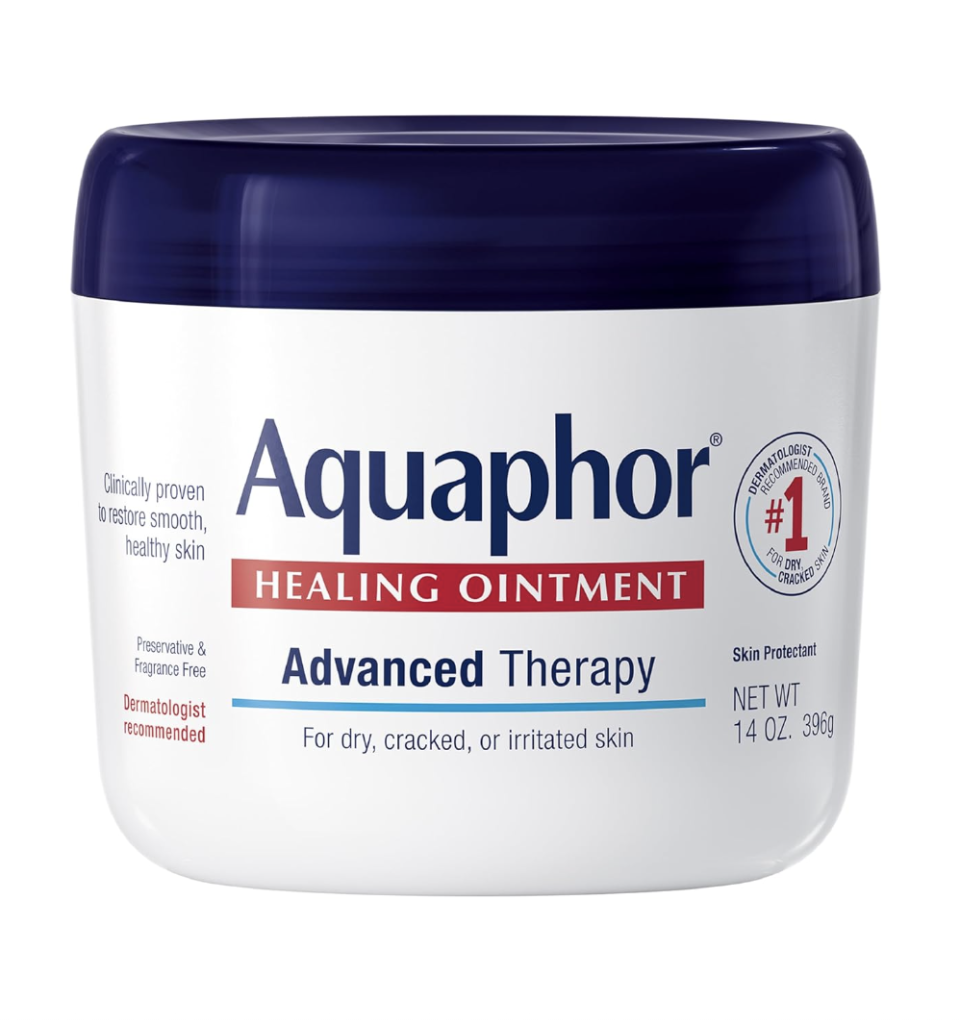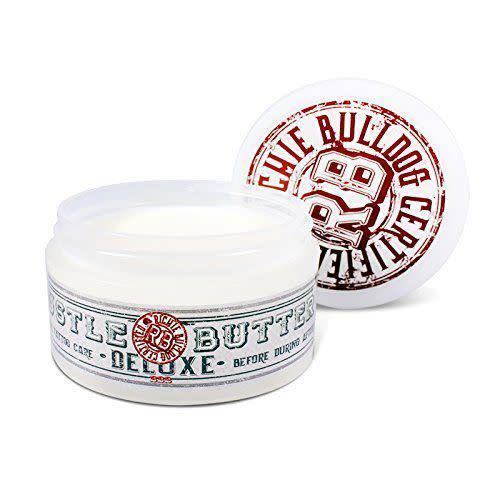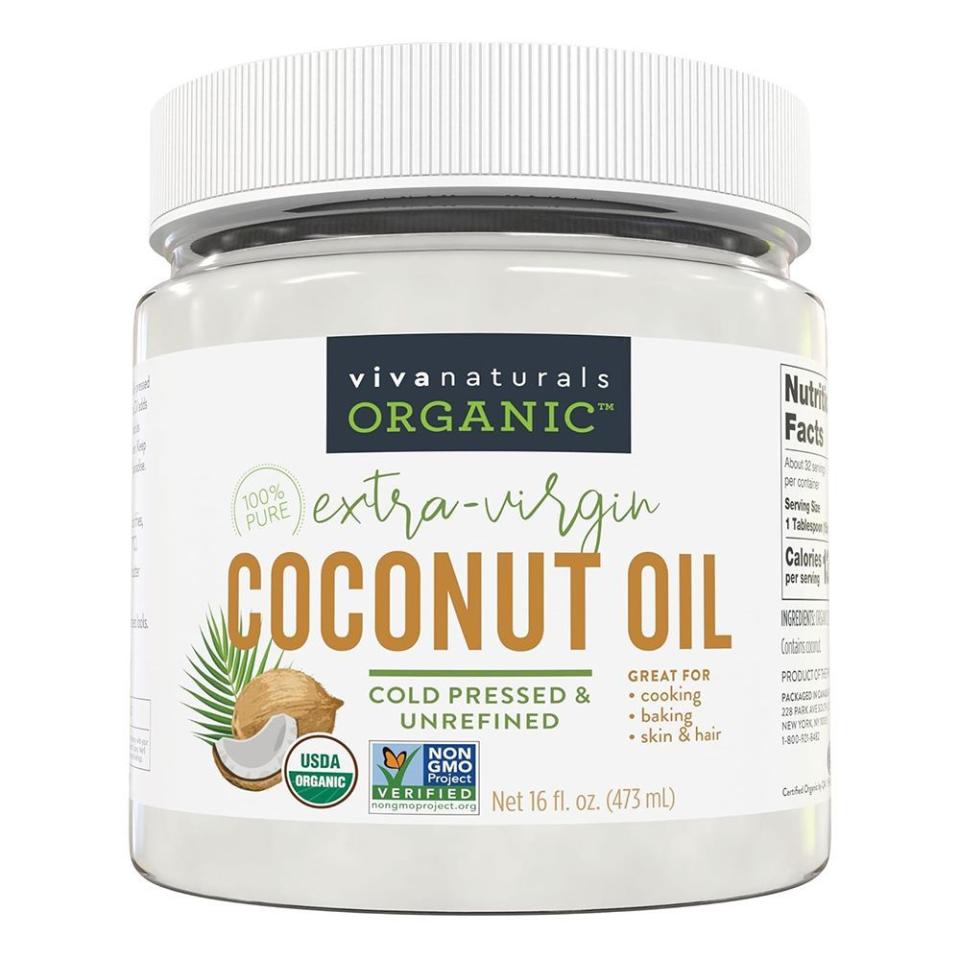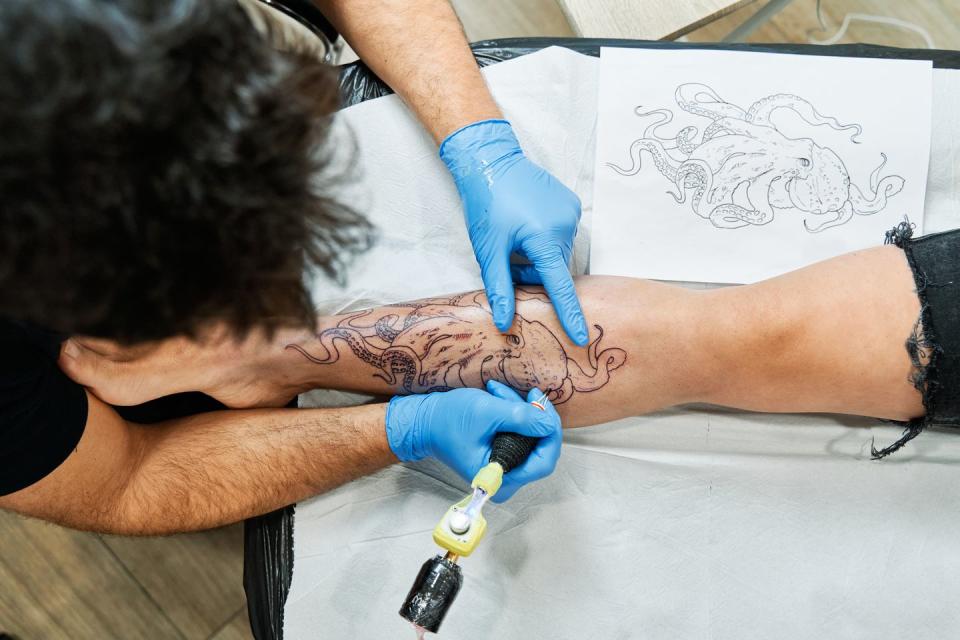Here's Exactly What You Should (And Shouldn't) Do After Getting A New Tattoo
"Hearst Magazines and Yahoo may earn commission or revenue on some items through these links."
Getting a new tattoo can be either exciting or nerve-wracking (usually depending on your pain tolerance), but there's nothing better than finally getting the ink that's been on your mood board for a while.
Although it's common to get lost in all the good feelings that come up as your appointment approaches, it's also pretty easy to forget that you're making a big commitment, not just to the piece of art that'll forever be etched onto your body, but also to the amount of care that goes into making sure your tat heals properly.
Meet the experts: Ash Aurich is a New York and Miami-based tattoo artist at Uplift Tattoo. Mira Mariah, aka Girl Knew York, is a New York-based tattoo artist. Dika O’Real is a tattoo artist based in Carlisle, England and founder of Studio 58.
Anyone who's no stranger to getting tattoos may already be familiar with aftercare, but for those who are getting their first tattoo (or their first in a while), a refresher on the best care practices is a must. The healing time of a tattoo depends on the size and detail, says Mira Mariah, aka Girl Knew York. However, the average healing time is roughly three to four weeks, according to tattoo artist Ash Aurich.
Speaking of which, how well you take care of your tattoo also plays a major role. Luckily, WH has you covered with answers to your most asked questions on tattoo aftercare.
What to expect during the first three days
The first three days after getting a tattoo will require extra caution and attention. Your artist will wrap your new ink in a protective bandage at the end of your appointment to protect it from dirt and debris, but the wrapping you get may dictate how you're supposed to care for the tattoo in the days following (more on that in a moment).
You may notice some scabbing, which is normal, even if you've had other tattoos done that didn't heal that way. "I have multiple clients that come and say, 'it wasn't scabbing like my previous [tattoos] that were done somewhere else,' but it really varies from person to person," explains England-based tattoo artist Dika O'Real. She notes that while some people automatically assume a scab means infection, it's likely because of other factors such as the style of the tattoo or the creams that were used after those sessions.
Below, check out a few other expert-approved tips for a smooth healing process.
Wash your tattoo a minimum of twice a day.
Those who will be exposed to dirt on the way home from the appointment (maybe the route home requires a ride on public transportation or a walk around a busy city, etc.), will want to clean their tattoo as soon as they get home, advises Mariah. "If you just got in your car and drove to the grocery store, you're probably fine," she adds.
If your artist wraps your tattoo in Saniderm, you'll most likely be instructed to leave it on for at least three days before you can remove it and clean your tattoo. Some artists may use a medical bandage you can take off the same day of your appointment and gently wash your tattoo with antibacterial soap and water. Both Mariah and Aurich recommend using Dial soap. However, some artists believe that antibacterial soap can strip the skin too much. In this case, a baby soap might be best, adds O'Real.
Keep the area moisturized.
Your artist may recommend applying ointments and creams after cleaning them. "I like to either have it dried with a clean towel, paper towel, or air dried and then apply something to help keep it moisturized," says Mariah. One of her go-to's is Hustle Butter, a coconut and mango oil-infused cream that keeps the skin moisturized before and after getting tatted. Aurich adds that using something like the Aquaphor Healing Ointment after washing your tattoo can help with the process as well. O'Real is also a big fan of coconut oil since it's not likely to cause an allergic reaction.
Healing Ointment Advanced Therapy Skin Protectant

Healing Ointment Advanced Therapy Skin Protectant
amazon.com
$18.37
Tattoo Aftercare Tattoo Balm

Tattoo Aftercare Tattoo Balm
amazon.com
$21.99
Organic Coconut Oil

Organic Coconut Oil
amazon.com
$8.99
Don't scratch your tattoo.
If your tattoo starts itching and even bruising, just know it's normal unless you notice other symptoms like secreting or long-term redness, which could signify an infection. The most important thing is that you resist the urge to scratch or pick at your new ink. It's okay if your tattoo peels on its own, but since tattoos are technically wounds to the skin, the best thing to do is let it be. If it's really bothering you, O'Real says lightly patting it should be okay. Just make sure to do so very gently to avoid irritation.
Avoid baths, saunas, or swimming pools for two weeks.
This pro tip is a big reason why some people prefer getting tattoos in the winter. According to O'Real these locations, in addition to oceans, rivers, and lakes, are full of bacteria. Opting for other activities during your healing time will lower your risk of infection. And with baths off the table, O'Real suggests taking five to ten-minute showers in medium-warm water.
Skip the gym for five days to 14 days.
If you live in the gym, this might be a difficult rule to follow, but it's totally worth it. O'Real explains that you have to think of a tattoo like a fresh wound or cut. "If you stretch the cut on the skin, it'll keep breaking, and eventually it will leave scar tissue rather than smooth surface skin," she says. It's also possible that your sweat or other germs from gym equipment can lead to infection.
Don't sleep next to your pet.
You might be used to cuddling up next to your cat or dog, but that can increase your chances of getting an infection. Instead, have them sleep elsewhere, and change your bedding before going to sleep, says O'Real. If the tattoo bleeds, there's also the chance that your pet might try to sniff or lick the area—another red flag for preventing infections.
Stay out of direct sunlight.
Ideally, you want to keep your tattoo out of the sun as much as possible. "[The sun] changes how tattoos look," explains Mariah. "You should really know that going into it. So sometimes, if [clients] get arm tattoos, I have them wrap a little bandana on their arm."
She adds that she's not the biggest fan of using SPF during the healing process because you don't know what chemicals are in the mix and how they can affect it. "I worry about any not sterile cream going into a new tattoo," she says.
Don't drink alcohol before or after.
Having liquid courage on your side might seem enticing, but some artists won't even agree to tat you (and with good reason). Alcohol thins your blood, which can result in excessive bleeding. This can throw your artist off and potentially mess with the ink and the final product. Plus, you want to feel your best, so your body can start healing your tattoo sooner than later.

What if I don’t take care of my new tattoo?
Hopefully, you won't neglect your new tattoo, but if you do, you should know that there are a few potential consequences. For starters, it could get infected. But it could also begin to look faded or blurry, says O'Real. She adds that this would most likely require more money for touch-ups, especially if the tattoo is highly detailed. Overall, you might not get the results you were hoping for without proper aftercare.
You Might Also Like

